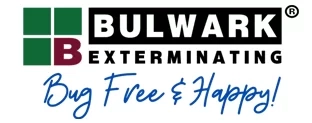How To Choose a Pest Control Company
It's important to choose the best pest control companyfor you. Important factors can include the company's qualifications, its treatment methods, experience and reviews, and of course the cost of services.
Below, we explore the details of each of these factors.
Does the company have a valid license and permits to perform pest control?
All pesticide applicators, as well as those that supervise them, should be licensed via the appropriate North Carolina regulatory agencies. The United States Environmental Protection Agency (EPA) sets minimum standards of competency, while providing, maintaining, and revoking licensing is handled at the state level.
Is the company a member of any professional organizations?
Pest control companies can earn the GreenPro Service Certification, which requires that a company show that its practices are more eco-friendly and that its employees receive up-to-date training. Trade organizations such as QualityPro offer additional certifications. These are not required, but can help show that a company is reputable.
There are certain professional organizations that a pest control company can belong to. While not required, membership in organizations such as the National Pest Management Association (NPMA) or state-level organizations help show a company's reputability. After joining an organization like the NPMA, a company receives access to resources, education, and a network of other professionals with whom to discuss best practices.
Professional Experience and Specialties
Looking at how long a company has been in business can help determine how much experience it has dealing with common pests in Raleigh. You can also browse its website or look through customer reviews to determine whether it has adequate experience with the species of pests you are dealing with. If this information is not available online, speaking with a company representative is a good way to learn more.
Reviews and Recommendations
You can check a company's reputation using social media or local review sites as well as the Better Business Bureau (BBB). You can also check with North Carolina's licensing board to verify the status of a company's license.
Cost of Services and Guarantees
Pest control costs can vary based on things like your location, the size of your house, the type of pest being treated, and other factors.
When thinking about the cost of services, you should first look into whether a company includes free on-site estimates as part of its services. This can inform you whether the company fits into your budget. Also look into what guarantees a company offers: If the problem is not resolved, or returns, does the company provide additional treatment until the problem is satisfactorily resolved?
Safety and Treatment Methods
Your preferences regarding safety for yourself, any children or pets, and the environment can influence the provider and the treatment methods you choose.
Safety
Be sure to ask your pest control expert if they plan to use low toxicity or non-toxic pesticides, and if not, what sort of precautionary measures they are going to use. All pesticides that are not considered minimum-risk chemicals must be registered with the EPA. Your pest technician will be able to supply information about all of the pesticides that they plan on using.
Treatment Methods
Pest control experts looking to reduce their use of chemical pesticides often implement procedures such as Integrated Pest Management (IPM). Using IPM involves a series of steps:
- Identify problem pests and determine if immediate action is needed.
- Determine the best and safest course of action.
- Manage the pest problem using a combination of physical, cultural, biological, and mechanical controls.
- Employ chemical controls only if needed, and always in combination with other controls for effective long-term pest management.
- Evaluate outcomes and provide additional pest control as needed.
















